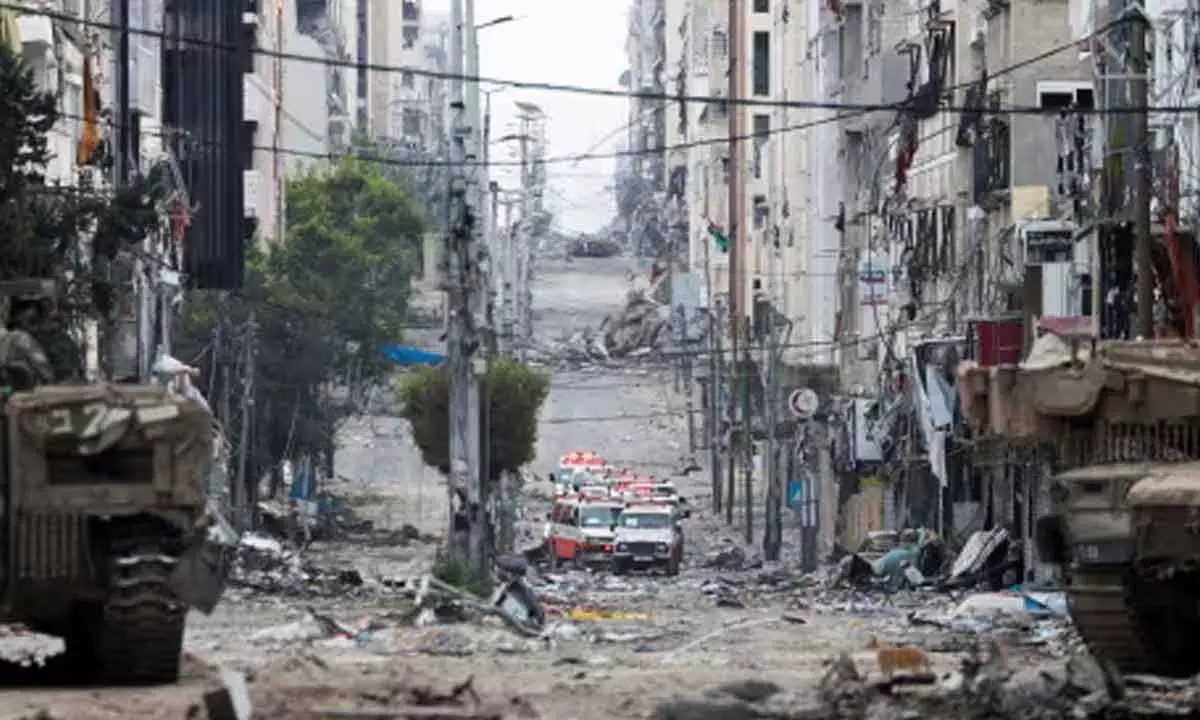A ceasefire is far from lasting peace

What is clear is that the war will continue after the brief ceasefire
For the first time since the deadly attacks by Hamas on Israeli border towns on October 7, 2023, that left at least 1,200 people dead, the Israeli government agreed on Nov. 22 to suspend its air and ground campaign in Gaza for four days in exchange for the release of at least 50 hostages held by Hamas.
Nearly six weeks in the making, the ceasefire deal also calls for the release of 150 Palestinians held in Israeli prisons. The fate of the remaining hostages is still unclear.
What is clear is that the war will continue after the brief ceasefire. Israeli Prime Minister Benjamin Netanyahu said on Nov. 21 that the pause would allow the Israel Defense Forces to prepare further for the fighting. “The war will continue until we achieve all of our goals,” Netanyahu said. Those goals include the return of all the hostages and the elimination of Hamas to ensure “Gaza will no longer be a threat to Israel.”
Military goals unchanged
The agreement between Israel and Hamas – driven by U.S. pressure on Israel – to exchange 50 hostages for 150 Palestinian prisoners and to pause fighting for four days is surely a welcome break in a horrific war. Not least, it will permit food and fuel to enter a devastated Gaza.
It does not, however, fundamentally change the awful geometry of the war: Netanyahu has pledged that Israel will continue the fight, and there seems little sign that Israel is any closer to a plan for what to do about Gaza or the Palestinians than when the war began. For its part, events have played out much as Hamas might have planned. They knew their barbarism on October 7 would call forth a brutal Israeli response. Hamas knew, cynically, that the more Palestinians who were killed, the better for its cause.
A distant hope for lasting peace
In the short run, the best that can be hoped is that this exchange and pause will be extended or be the first of more to come. Certainly, Israel has been under global – and especially American – pressure to agree to some pause, and the Netanyahu “unity” government has felt the heat, domestically, for seeming to disregard the hostages.
In the longer run, after much more killing and suffering, the alternatives still remain dreary. Israel has no stomach for occupying Gaza and surely none for letting Hamas again pretend to govern. The Palestinian Authority remains corrupt, weak and inept in the eyes of those it governs, and as a result is a poor candidate to take on Gaza.
The best hope is a distant one – that some coalition of mostly Arab states but also perhaps including the US could govern Gaza, perhaps exercising some tutelage over a reformed Palestinian Authority.
But that is a long way off, and the hostage exchange and pause does not take the region or the world much closer to a lasting peace.
(Writer is Professor of Practice in International Relations, USC Dornsife College of Letters, Arts and Sciences, Los Angeles; The Conversation)








